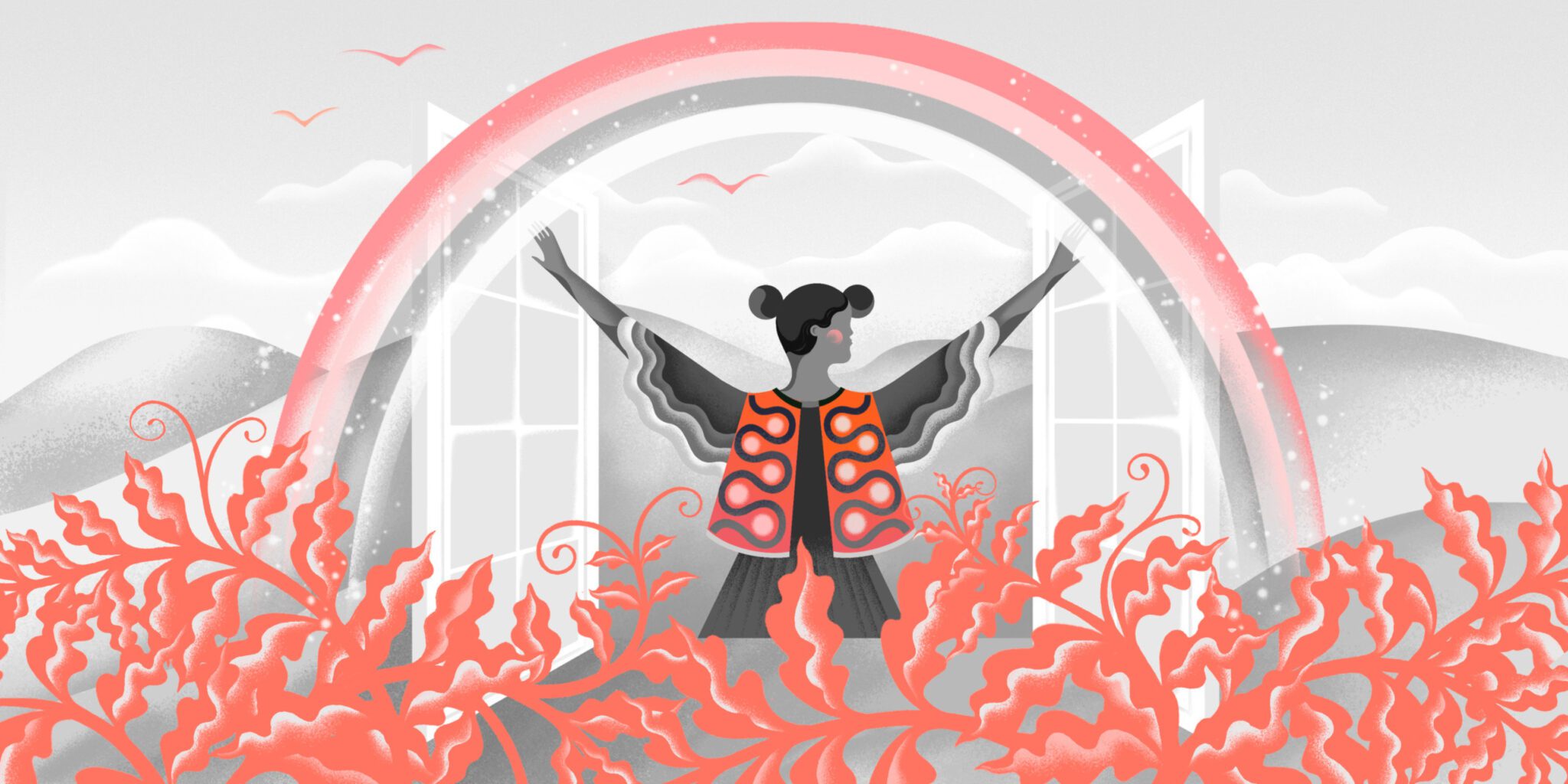This story is Part I of a two-part series on gratitude science. Read Part II, Charting a Global Map of Gratitude.
Dr. Michael McCullough is out to prove himself wrong. Or rather, he’s out to test whether his long-held claims about gratitude are right.
McCullough is a leading expert on the science of gratitude and one of the early researchers on the subject. A psychologist at the University of California, San Diego, McCullough began his career in counseling psychology. In this role, he helped people identify strengths and abilities (like forgiveness) that would equip them to better cope with life’s challenges. Gratitude was one such strength. The subject also caught his attention because it seemed like an unmined vein in the social sciences. It was talked about everywhere, but hardly studied systematically. “Roman stoics talked about it, it’s in the Bible, it’s all over the Abrahamic religions, in Eastern traditions—it’s everywhere.” Not only that, he adds, but “every field likes it.”
Finding such a rich yet unexplored subject seemed almost too good to be true. It was certainly too good not to explore. So McCullough, with his colleague Robert Emmons, pioneered the scientific study of gratitude. In 2003, they published their findings about gratitude’s impact on psychological and physical well-being. The following year, they published The Psychology of Gratitude, a collection of scientific investigations on gratitude—or as it was known at the time, “the most-neglected emotion.”
In the decades since, gratitude research has exploded in scope and popularity.
The general consensus stemming from this research is that gratitude is good for everyone and valued everywhere: in every society, in every culture, on every continent.
A quick Google search will assure you that gratitude improves physical health, builds resilience, mitigates anxiety, and strengthens relationships. As studies mounted, McCullough watched psychologist after psychologist reach the same conclusion: gratitude seemed “universally to be viewed as a good thing.” But something about these findings didn’t sit right with him.
McCullough started considering whether gratitude really was a universally good thing. He realized he couldn’t be sure. Like the vast majority of social science research, gratitude research has concentrated overwhelmingly on so-called WEIRD societies: Western, Educated, Industrialized, Religious, Democratic. The research was too limited, taking into account only a tiny sliver of the world’s population. As the years passed, he grew more and more dissatisfied with this knowledge gap. He’d claimed that gratitude was good for human well-being. But one day he thought, “I actually don’t know if that’s true. I don’t think I have the grounds to make that claim, really, and I don’t know if anybody else has the grounds to make that claim—because it hasn’t been studied.”
This revelation led him to reach out to a few colleagues about conducting a large-scale, ambitious study of gratitude across cultures. An interdisciplinary team coalesced. Together they designed a multi-year project called “Uncovering the Cognitive and Cultural Foundations of Gratitude.” Funded by the John Templeton Foundation, the multi-year project will remove the WEIRD-centric lens to identify what, if anything, is cross-culturally universal about gratitude.
“In a spirit of humility, we need to recognize that most things we believe are wrong,” says McCullough. “And it’s the goal of science to make us less wrong.”
An incomplete picture
The locus of gratitude research, and social science activity as a whole, is concentrated overwhelmingly in Europe and North America. There are exceptions to this pattern; limited gratitude research has been conducted on most continents. But our understanding of the human experience of gratitude is riddled with geographical and cultural gaps. The data is even more scant when it comes to comparing gratitude across different cultures, particularly across non-WEIRD cultures.
The problem with this narrow geographical range is that only a small portion of human experience is represented. The existing research indicating, for example, that gratitude improves health can’t be generalized to all people. Maybe it does, but it has yet to be studied and proven cross-culturally. “You say things like gratitude is understood everywhere, or gratitude is valued everywhere, or gratitude makes people feel happier everywhere. We just don’t have any idea if those things are true or not,” McCullough says.
As an example, he points to different cultural views on indebtedness. In the United States, people don’t talk much about the emotion of indebtedness. We may have a general sense of what it means to feel indebted to someone, but it’s not a significant piece of our emotional or relational lexicon. If anything, we attach a negative connotation to the word, linking it to guilt or viewing it as a hindrance to our prized sense of autonomy and self-sufficiency. On the other hand, we feel overwhelmingly positive about displaying gratitude, practicing gratitude, and reaping the side effects of gratitude. Someone doing something kind for us, in simple terms, makes us very happy.
This doesn’t translate precisely to other cultures. When someone does something kind for another person in Japan, China, and Korea, “one of the primary emotions is indebtedness,” explains McCullough. “[Indebtedness] is a fellow traveler with gratitude.” An unexpected display of kindness may make a Californian feel grateful, and therefore happy. But it may make someone from Seoul feel indebted. Which response someone feels is likely a product of where they live. In other words, “the experiences that cause gratitude might be the same across cultures, but the emotional experience, the emotional texture, and the social consequences may be different.”
Nuances like the feelings of gratitude versus indebtedness exist across all societies; we just don’t know what or where they are yet. We don’t yet know, as McCullough puts it, “where gratitude fits in the emotional grammar of all of these different societies.” And until we have a study in which researchers look at the relationship between gratitude and indebtedness across dozens of countries, psychologists won’t be able to draw meaningful conclusions about their relationship.
Annelise Jolley is a journalist and essayist who writes about place, food, ecology, and faith for outlets such as National Geographic, The Atavist, The Rumpus, and The Millions. Find her at annelisejolley.com.


